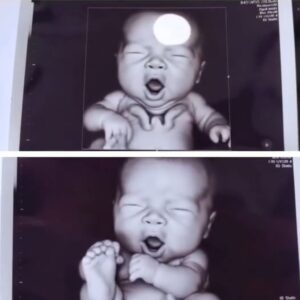Meredith resides with her former husband, Darion, for financial reasons, even though they have been divorced for two years. Their living situation is characterized by distance and practicality—until one evening, she observes that he has changed their porch light to green. When she inquires about it, Darion merely replies, “It’s for my father,” without providing any further details. Intrigued and disturbed, Meredith later discovers from a friend that green porch lights are a symbol used to honor veterans, particularly those who struggle with PTSD or have succumbed to suicide.
This insight leads to a quiet yet significant conversation between the two. Darion reveals that he has recently learned his father died by suicide—a truth that his mother had concealed from him. The green light serves as his tribute to his father’s memory and a recognition of others in similar situations. The vulnerability expressed that evening begins to bridge the emotional gap between Meredith and Darion.
Their relationship gradually becomes more tender as Darion leaves considerate notes and prepares meals. They reconnect through shared recollections and old letters from his father. As feelings emerge, they also face unresolved matters from their marriage, resulting in painful arguments and setbacks. Nevertheless, through genuine gestures and a heartfelt apology, they embark on counseling—not with the immediate goal of reuniting, but to comprehend and heal.
During therapy, they exchange letters that convey admiration and regrets, which deepens their emotional connection. Their endeavors lead to a renewed intimacy, participating in community initiatives to support veterans, and educating neighbors about the significance of the porch light.





